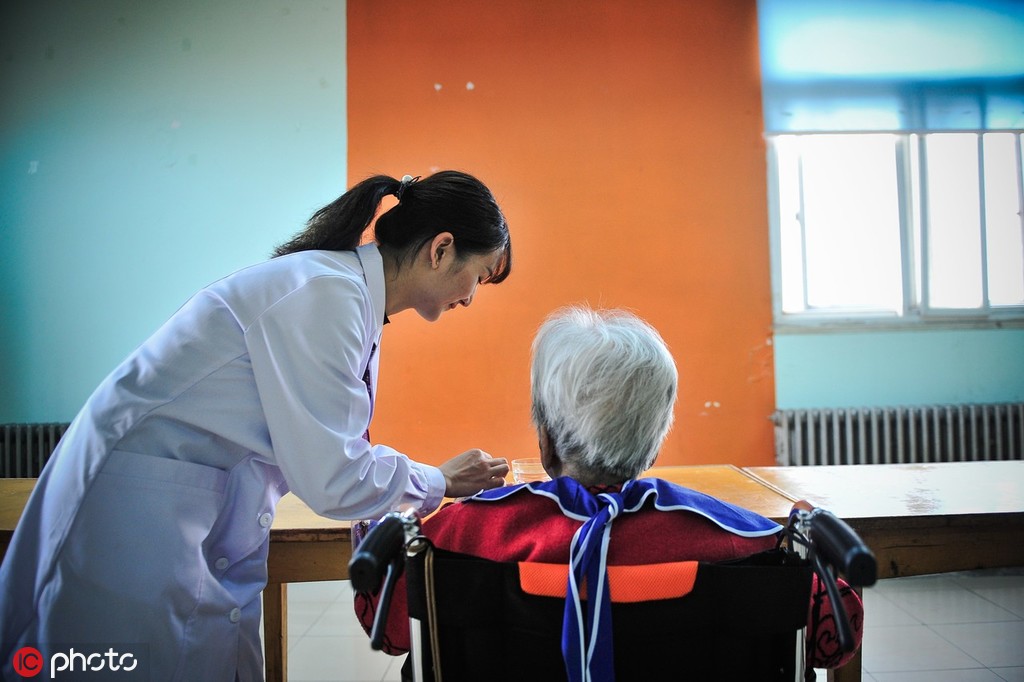Care for the dying to go nationwide


End-of-life program is a priority for aging population, health official says
China hopes to soon expand an end-of-life care program across the country after a successful pilot program, the National Health Commission said on Monday.
Hospice care, which aims to tend to the physical, emotional and sometimes spiritual needs of the terminally ill and help them die with dignity, is not common in China.
But facing a rapidly aging society and the fact that around 75 percent of China's elderly people suffer from chronic diseases, the health authority has made hospice care a priority for seniors, said Wang Haidong, director of the commission's Department of Aging and Health.
The department was set up in September to improve elderly healthcare and focus on other senior-related issues.
Wang said the pilot program - launched in 2017 in five cities and municipal districts, including Haidian district in Beijing, Putuo district in Shanghai and Changchun in the northeastern province of Jilin - was "fruitful".
"We will make efforts to enable access to end-to-life care across the country as early as possible," Wang said, without giving a timetable.
According to a meeting on the pilot program this month, 283,000 patients received end-of-life care across the country in 2018.
In May, the commission released a circular on the program, calling for more research and investigation, recruitment and improved mechanisms to assist it, Wang said.
In the next move, the commission will release guidelines for end-of-life care services that include medication guides and other expertise, he added.
Meanwhile, the country will carry out a psychological care program for the elderly in 1,600 urban communities and 320 rural villages. The program will provide mental health services to the seniors through training sessions, assessments, interventions and referrals, Wang said.
The program is expected to provide a better understanding of the mental health status and needs of the elderly, improve primary staffs' skills to identify common psychological problems at an early stage, and enhance mental health awareness among senior citizens.
At the end of 2018, China had 249 million people aged 60 or above, making up 17.9 percent of the population.
Wang said current elderly healthcare is "seriously insufficient" due to the shortage of staff and medical, rehabilitation, nursing and hospice institutions. There are also 40 million disabled seniors with an urgent demand for long-term care.
As they age, the elderly experience a series of major life changes such as health deterioration, retirement, and death of friends or partners. These changes have a great impact on the elderly's emotions and might lead to depression or anxiety if not dealt with in time, Wang added.
Xinhua contributed to this story.
- Over 3,400 foreign travelers utilize 240-hour visa-free policy to enter China through Xiamen
- China targets world-class Earth system forecasting network by 2035
- Crossing the red line means resolute counterattack, warns Chinese mainland
- Gaming, AI, animation highlight Digital Entertainment Conference in Guangzhou
- Viral video shows meteor streaking over Helan Mountains in Ningxia
- China innovates network technology, achieving efficient data transmission





































